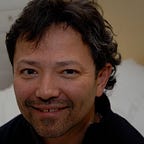Deleuze and Psyche 1
Kant, Nietzsche, Freud and Jung
What is the nature of the self? What is the nature of the mind or psyche?
Enquiries into the nature of the psyche are both philosophical and psychological.
Here, we will focus on a narrow band of thought that is positioned on the border where philosophy meets psychology: Kant and Nietzsche, Freud and Jung, and Deleuze’s critique of their thought.
The Unified Psyche
The psyche is the totality of the human mind, conscious and unconscious.
As understood by Kant, the psyche is unified, its faculties harmonized; the faculties of sensibility and understanding regulated by reason.
Instinct, habit and intuition are governed by reason.
The vision is of a mind in its totality that is ordered and structured, a closed organization of passive and active syntheses that work in tandem together under the oversight of human reason.
The Fractured Psyche
Nietzsche, in response to Kant, characterizes the psyche as fractured.
The unconscious drives compete and often conflict with one another for authority over the mind.
The psyche is a battleground of warring forces and perspectives.
Consciousness is transitory and not always reliable, and reason has little authority over the will to power.
The Open Psyche
Deleuze follows Nietzsche and views the psyche as open; conflicting forces pulling it into different configurations, changing its quality perpetually.
For Deleuze, there is no static, unified subject informed by reason that governs the psyche. Much of the activity of the psyche is unconscious, based in instinct, habit and intuition.
Consciousness is a contingent matter, a reflexive quality of the mind.
The Structured Psyche
Freud’s interpretation of the mind is well known:
The id, representing unconscious instinctual drives; the super-ego, representing conscience and the internalization of societal norms and morality; and the ego, integrating the drives of the id with the prohibitions of the super-ego.
Freud saw the id as driven purely by sexualized psychic energy, and the conflict between the id and super-ego as the origin of neurosis.
For Freud, the unconscious, while containing instincts for self-preservation, is dominated by repressed sexual desire.
Psychic Energies
Jung had a broader understanding of psychic energy.
His understanding of the psyche starts with an investigation into a wider range of phenomena which tend toward dissociation of the psyche, both neurotic and psychotic.
Jung viewed psychic energy as more diverse than Freud’s purely sexual interpretation.
Jung’s unconscious is not primarily the depository of repressed sexual energy, but is the reservoir of the many instincts and tendencies of human beings, including but not limited to the need for self-preservation and reproduction.
For Jung, the unconscious is multiple, there are many instincts and they take the form of archetypes.
Archetypes
Archetypes are ideas that shape experience, primarily through the faculty of intuition.
They are symbolic expressions of the problems that arise as a result of human experience.
The archetypes are images that evolve and are immanent to human experience; they have no transcendent or mystical origin.
The archetypes are immanent, conscious expressions of human problems.
I hope you enjoyed this article. Thanks for reading!
Tomas
Please join my email list here or email me at tomas@tomasbyrne.com.
Excerpt from my forthcoming book, Becoming: A Life of Pure Difference (Gilles Deleuze and the Philosophy of the New) Copyright © 2022 by Tomas Byrne. Learn more here.
